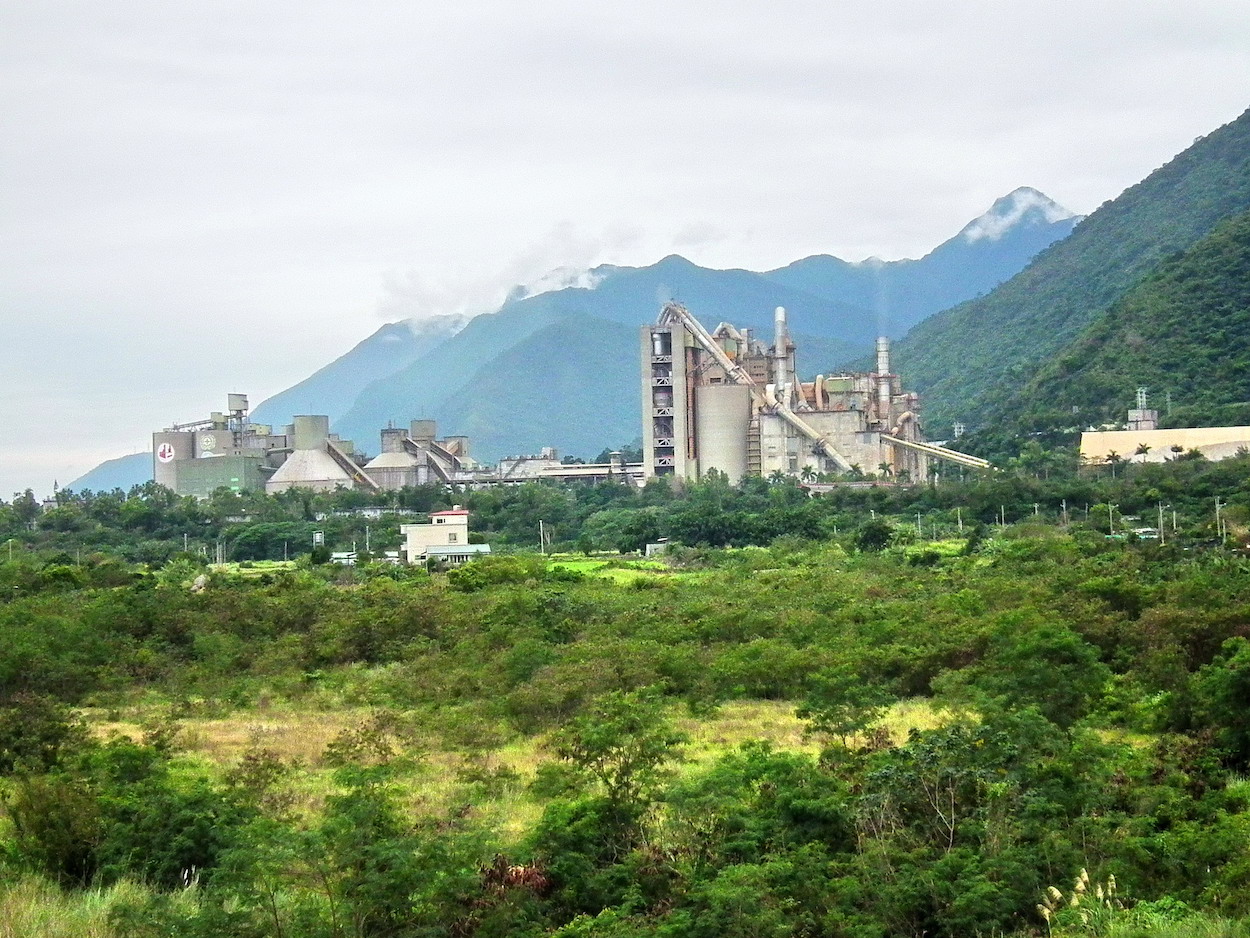by Brian Hioe
語言:
English
Photo Credit: billy1125/WikiCommons/CC
A REPORT BY the Executive Yuan on the Asia Cement mine on Indigenous land in Taroko Gorge has led to backlash from Indigenous community representatives, after the findings of the report were that there was not any illegal activity in the land leases for mine. The report’s conclusions have been criticized as reflecting a certain political viewpoint, as well as being contradictory to the report itself. Issues have also been raised with the writing process for the report. Asia Cement is a subsidiary of Far Eastern Group, one of Taiwan’s largest conglomerates.
In particular, the report was conducted by National Tung Hwa University at the request of the Executive Yuan into the lease process for the Sinchengshan Mine, which is operated by Asia Cement. Asia Cement’s mine in Taroko Gorge has long been controversial, as it is on Truku Indigenous land.
The mine has been present on Truku land since 1973. Apart from that its original residents were displaced from the land to build the mine, the mine is also disruptive to the lives of local residents, with large explosions taking place daily, and significant tracts of the mountain hollowed out to build the mine. Local residents’ drinking water is also affected by pollution from the mine. Payouts to local residents for the effect on their daily lives are low, even in the event of deaths caused by accidents from the mine.
Protests against the mine were particularly heated in June 2017, with protests drawing 2,500, and criticisms of the mine from celebrities at the Golden Melody Awards. The death of documentary filmmaker Chi Po-lin in a helicopter crash also sparked a wave of outrage regarding the mine, seeing as Chi documented the damage to the mountain in his works before his death.
In consideration of the fact that the mine was built through displacing Indigenous, it may not be surprising that Indigenous community representatives have disputed the report’s findings that the lease for the mine was not illegal.
 Asia Cement’s Hualien mine. Photo credit: lienyuan lee/WikiCommons/CC
Asia Cement’s Hualien mine. Photo credit: lienyuan lee/WikiCommons/CC
Indeed, as pointed out in a letter by a total of nine experts and community representatives in the fact-finding committee, aspects of the report contradict the findings that there was no wrongdoing. The report brings up how the Far Eastern Group enjoyed close ties with the KMT party-state, allowing it to hire consultants close with the government so as to set up the mine. Asia Cement did not communicate with Indigenous living on the land in order to secure their consent to mine, not bothering to try and bridge any gaps in linguistic or cultural understanding.
According to the letter, the thirteen members of the fact-finding committee for the report were not given the opportunity to review its findings and raise dissenting opinions, with the Executive Yuan inserting conclusions contradictory to the research constituting the report. The Executive Yuan, then, is accused of simplifying the report’s conclusions by holding a press conference with a conclusion that does not accord with the report’s actual findings.
As such, the Executive Yuan is accused of violating the spirit of transitional justice for Indigenous in its actions. For its part, the Executive Yuan has denied that there were any irregularities with the investigations.
The Executive Yuan’s priorities may be on maintaining the mine, as over 80% of cement production takes place in eastern Taiwan, and the Hualien site comprises 29% of cement production in Taiwan.
Indeed, the DPP has been accused of introducing legislation to allow the Asia Cement mine to sidestep environmental legislation in the past. A draft amendment introduced by DPP legislators in January 2018 called for the Bureau of Mines to accept requests to renew mining permits from mines that already have permits, without needing to undergo another approval process. Yet this would allow mines that were already operating before the 1993 Environmental Impact Assessment Act, such as the Asia Cement mine, to continue operating without oversight. As the Mining Act dates to 1930, this would allow a number of mines that date from before modern environmental measures to keep operating.
Despite a decision by the Hualien County government that Asia Cement’s mining rights would not be renewed, the Ministry of Economic Affairs argued that mines in the process of applying for renewal could keep mining under Article 13 of the Mining Act. In this sense, the Ministry of Economic Affairs could be seen as covering up for Asia Cement. As such, the Executive Yuan’s actions may not be particularly surprising, with its priorities on protecting the mine. It remains to be seen, then, whether there will be further pushback against the Executive Yuan’s actions.

